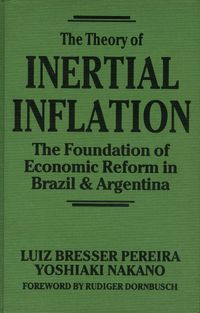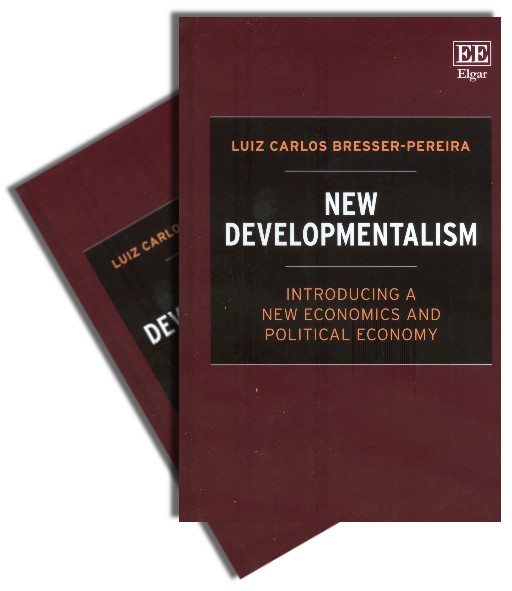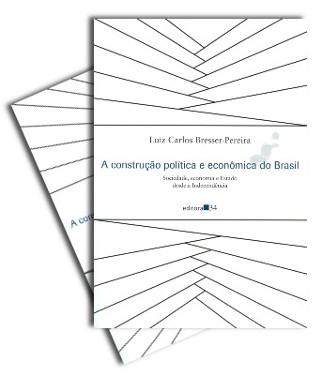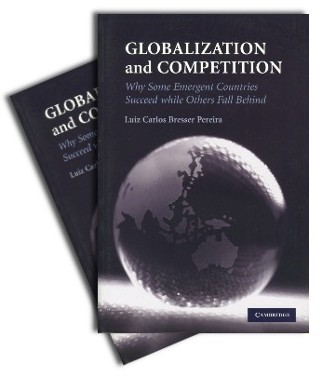Luiz Carlos Bresser-Pereira and Yoshiaki Nakano
Boulder: Lynne Rienner Publishers, 1987. Translation of Inflação e Recessão, 1984.

The theory of inertial inflation explains a phenomenon that neither monetarist nor Keynesian economics is able to illuminate. In addition to its roots in upward pressure on prices, inflation under contemporary capitalism has an inertial component. Given the distributive conflict, which leads economic agents automatically to pass cost increases through to prices, the level of inflation experienced in the past continues to be anticipated, and is therefore carried into the present. The level of inflation will be maintained even in the absence of such traditional explanatory factors as public deficits and excess demand. This book clarifies the analytical concepts and variables necessary to understand inertial inflation and its policy implication.
The authors emphasize the distinction between the accelerating (supply or demand shocks) and maintaining (inertial) aspects of inflation. They perceive an increased money supply as a consequence rather than a cause of inflationmdasha validation of inflation that has already taken placemdashand demonstrate that the inertial component becomes more pronounced as the rate of inflation increases. When faced with high levels of inflation, policymakers must adopt a policy of heterodox shock: the instantaneous freezing of all prices, wages, and exchange rates. It is this theory that served as the basis for the Austral Plan (1985, Argentina) and Cruzado Plan (1986, Brazil), which interrupted annual rates of inflation of 1000 percent and 350 percent respectively. The chapters on Brazil's economy provide an analysis of the Brazilian inflation based on this theoretical model.
Book in PDF format, complete or by chapters
The Theory of Inertial Inflation (Complete)
Contra Capa
Contents
Tables
Foreword
Preface
1 - Introduction: Inertial Inflation and the Heterodox Shock in Brazil
Part 1 - The Political Economy of Inflation
2 - Inflation in Oligopolistic and Technobureaucratic Capitalism
3 - The Theory of Inertial or Autonomous Inflation
4 - Administrative Policy: Gradualism or Shock
5 - Inertial Inflation and the Phillips Curve
Part 2 The Brazilian Inflation
6 - The Contradictions of Brazilian Inflation: 1964-1979
7 - Recession and Inflation: 1981
8 - Accelerating Factors in 1979 and 1983
9 - Inertial Inflation on the Eve of the Shock
10 - The Difficulties of the Cruzado and the Austral Plans
Statistical Appendix
Bibliography
Index
About the Book and the Authors
















































